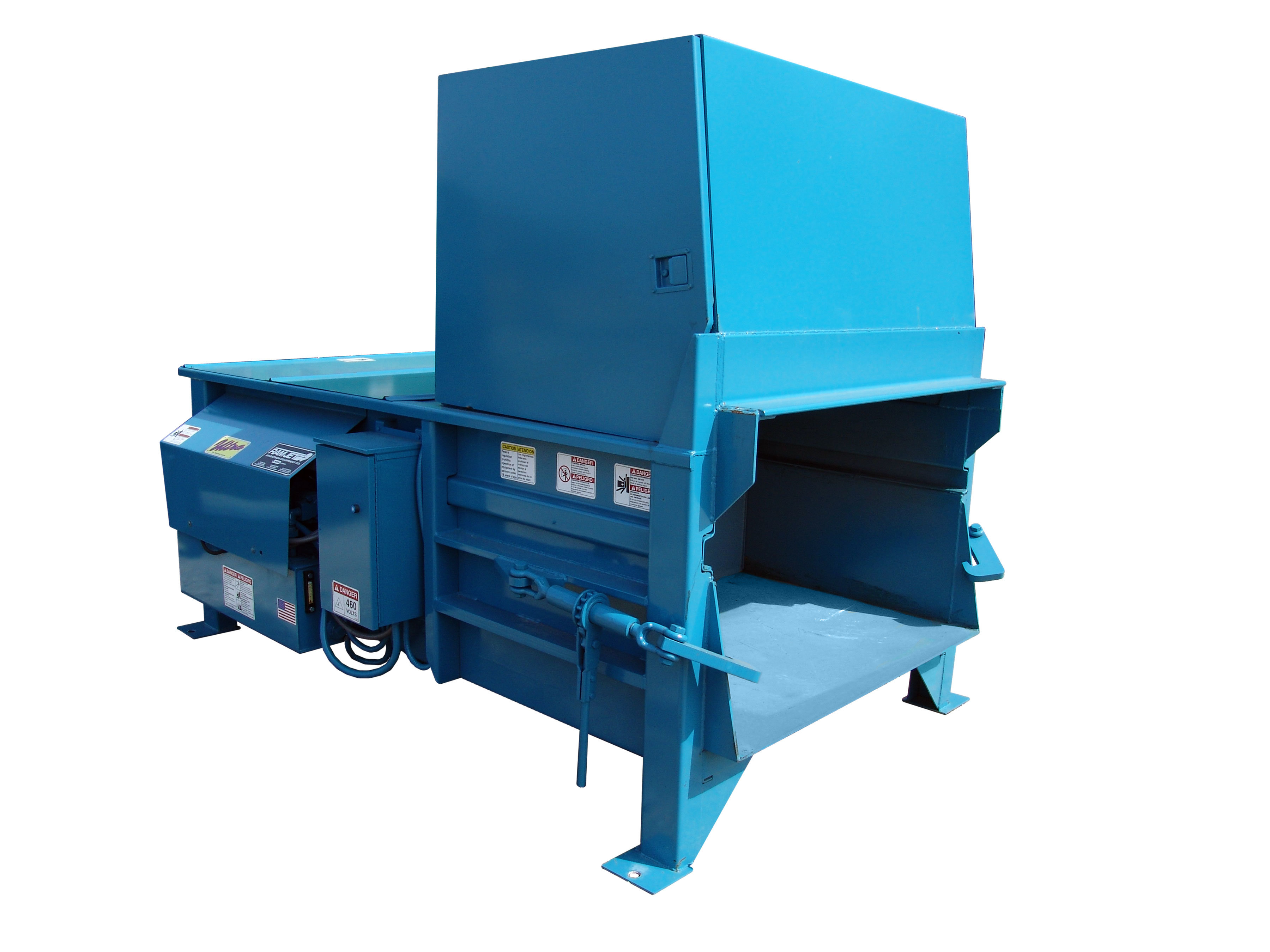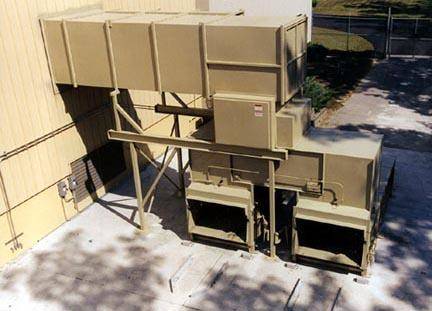The Advantages of Making Use Of Waste Equipment for Effective Waste Management
Effective waste monitoring depends greatly on advanced waste Equipment. This technology boosts sorting accuracy and minimizes contamination rates. Automated systems, driven by fabricated knowledge, promote the splitting up of recyclables and natural waste. Such technologies not only improve processing efficiency but also add to substantial price financial savings. Nonetheless, the complete degree of these benefits prolongs beyond mere operational renovations. There are deeper effects for ecological sustainability that merit even more assessment.
Improved Waste Arranging and Handling
As waste administration techniques advance, boosted waste sorting and processing innovations have ended up being crucial for advertising sustainability. These advancements make it possible for more effective splitting up of recyclable products, natural waste, and general refuse, decreasing contamination prices and boosting recycling results. Automated sorting systems, furnished with sensors and AI capabilities, can quickly identify and classify numerous materials, reducing human error and labor prices.
Progressed handling technologies such as shredders and compactors maximize waste volume, helping with easier transportation and handling. By utilizing these ingenious tools, waste monitoring facilities can significantly increase the healing of valuable resources, such as steels, plastics, and paper, which can then be reestablished right into the manufacturing cycle.
The assimilation of improved waste sorting and handling not only fosters an ecologically liable approach however additionally encourages areas to take on sustainable methods, eventually adding to a circular economy targeted at reducing garbage dump waste and conserving natural sources.

Price Savings Through Improved Efficiency
Significant cost savings can be recognized with enhanced efficiency in waste administration operations. By incorporating innovative waste Equipment, organizations can streamline their procedures, decreasing labor costs and lessening functional downtime. Automated systems improve sorting accuracy, causing less contamination and more reliable recycling, which eventually decreases disposal fees.
Additionally, energy-efficient machinery adds to minimized utility expenditures, while maximized directing of collection automobiles lowers fuel intake. These effectiveness not just cut expenses however also permit much better resource allocation, allowing business to purchase more innovations.
Maintaining Equipment proactively can stop costly failures and prolong equipment lifespans, providing lasting monetary advantages. Overall, the fostering of effective waste management methods and technologies promotes a more lasting operation, placing services for better success and affordable benefit in a market increasingly concentrated on cost-effectiveness
Decrease of Environmental Influence
While implementing advanced waste Equipment, companies can considerably minimize their ecological impact. This decrease is attained through enhanced waste sorting and handling capabilities, enabling for higher prices of recycling and composting. By effectively dividing recyclable materials from basic waste, organizations reduce landfill use, which consequently decreases methane emissions-- a powerful greenhouse gas.
In addition, using energy-efficient waste Equipment decreases energy intake, additional reducing the carbon impact connected with waste monitoring procedures. Boosted waste processing innovations can also convert waste into different power sources, minimizing and advertising a circular economy dependence on fossil fuels.
Inevitably, companies that spend in sophisticated waste Equipment add to a much healthier setting by lowering pollution degrees and preserving natural deposits. This proactive approach not just fulfills regulatory requirements but likewise lines up with business social duty objectives, interesting ecologically mindful consumers and stakeholders alike.
Enhanced Safety and Conformity
When organizations focus on the execution of advanced waste Equipment, they typically experience a notable rise in security and conformity within their procedures. Improved waste administration systems lower the threat of accidents connected to unsafe products, as modern-day Equipment is designed with safety features that safeguard employees and the setting (Commercial trash compactor equipment). For example, confined systems decrease exposure to harmful substances, while automated procedures restrict human communication with harmful waste
Furthermore, adherence to governing criteria is structured through making use of sophisticated waste Equipment. Organizations can extra quickly track waste disposal, generation, and storage, ensuring conformity with neighborhood and government guidelines. This not just minimizes possible legal effects but likewise improves the organization's reputation within the community. By purchasing modern waste Equipment, business demonstrate a commitment to keeping a safe work atmosphere while meeting their environmental responsibilities, eventually promoting a culture of safety and security and conformity throughout their operations
Technologies in Waste Equipment Innovation
As improvements in modern technology remain to improve various view it markets, waste management is experiencing a change via ingenious Equipment designed to boost efficiency and sustainability. The introduction of clever waste bins geared up with sensors permits real-time tracking of waste degrees, maximizing collection courses and lowering gas consumption. Additionally, automated sorting systems use synthetic intelligence to identify and divide recyclables from general waste, significantly enhancing reusing prices.
Additionally, condensing and shredding modern technologies have developed, enabling much more effective waste quantity decrease, which can lead to lower transportation costs. Innovations such as biodegradable waste processors are also gaining traction, transforming organic waste into usable compost, thus sustaining green techniques. Solar-powered waste compactors are making strides in power performance, utilizing sustainable resources to operate autonomously. Jointly, these advancements not only enhance waste administration procedures however likewise add to a more sustainable future, mirroring an expanding dedication to environmental responsibility.
Frequently Asked Inquiries
What Kinds Of Waste Equipment Are Frequently Made Use Of in Waste Management?

Just How Can Companies Examine Their Waste Management Needs Successfully?
To assess waste monitoring needs effectively, organizations must review waste types, volumes, regulative requirements, and disposal prices. Carrying out regular audits and consulting with sector experts can aid recognize optimal methods and Equipment for reliable waste handling.
Are There Federal Government Rewards for Making Use Of Waste Equipment?
Federal government incentives for making description use of waste Equipment vary here by region, typically including tax obligation debts, aids, or grants. These programs intend to motivate organizations to improve and take on sustainable methods waste administration performance through financial backing.

What Are the Upkeep Requirements for Waste Administration Equipment?
Maintenance requirements for waste administration Equipment commonly include normal inspections, lubrication of relocating parts, cleansing to protect against clogs, and prompt repair work. Abiding by supplier guidelines guarantees peak efficiency and longevity of the Equipment.
Exactly how Do I Choose the Right Waste Equipment Vendor?
Selecting the best waste Equipment distributor includes assessing their experience, item array, customer support, and pricing. Looking into testimonials and comparing numerous distributors can help assure the choice lines up with particular waste management requirements and objectives.
Efficient waste management depends greatly on sophisticated waste Equipment. As waste management methods advance, enhanced waste sorting and handling innovations have become necessary for advertising sustainability. The use of energy-efficient waste Equipment reduces energy consumption, further reducing the carbon footprint linked with waste monitoring procedures. Various kinds of waste Equipment are commonly utilized in waste monitoring, including compactors, shredders, balers, dumpsters, and reusing containers. To examine waste administration needs successfully, businesses need to review waste kinds, quantities, governing requirements, and disposal costs.